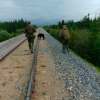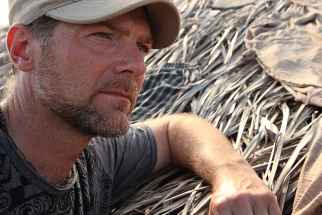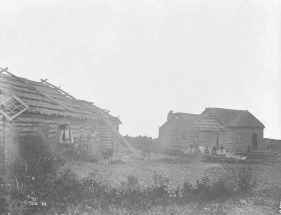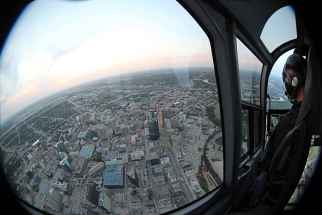Survivorman Les Stroud describes what B.C. fugitives could be up against
Read this article for free:
or
Already have an account? Log in here »
To continue reading, please subscribe:
Monthly Digital Subscription
$0 for the first 4 weeks*
- Enjoy unlimited reading on winnipegfreepress.com
- Read the E-Edition, our digital replica newspaper
- Access News Break, our award-winning app
- Play interactive puzzles
*No charge for 4 weeks then price increases to the regular rate of $19.00 plus GST every four weeks. Offer available to new and qualified returning subscribers only. Cancel any time.
Monthly Digital Subscription
$4.75/week*
- Enjoy unlimited reading on winnipegfreepress.com
- Read the E-Edition, our digital replica newspaper
- Access News Break, our award-winning app
- Play interactive puzzles
*Billed as $19 plus GST every four weeks. Cancel any time.
To continue reading, please subscribe:
Add Free Press access to your Brandon Sun subscription for only an additional
$1 for the first 4 weeks*
*Your next subscription payment will increase by $1.00 and you will be charged $16.99 plus GST for four weeks. After four weeks, your payment will increase to $23.99 plus GST every four weeks.
Read unlimited articles for free today:
or
Already have an account? Log in here »
Hey there, time traveller!
This article was published 26/07/2019 (2330 days ago), so information in it may no longer be current.
A Canadian survival expert says there’s no way to know what two accused killers from B.C., who are the focus of a huge manhunt in northern Manitoba, will do next.
“It runs the gamut as far as what’s possible at this moment,” said Les Stroud, host of the Survivorman TV show in which he survives in remote locations with few resources beyond his skill set.
Kam McLeod, 19, and Bryer Schmegelsky, 18, of Port Alberni, B.C., have been charged with second-degree murder in the July 19 death of 64-year-old Leonard Dyck. The two are also suspects in the deaths of Australian Lucas Fowler and American Chynna Deese, a young couple who were shot to death.
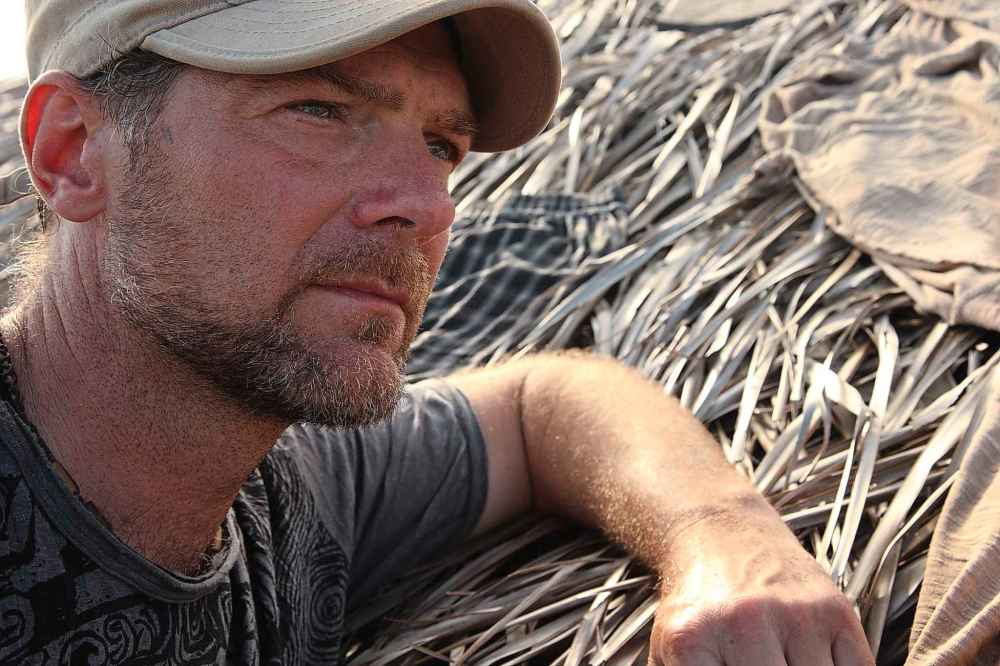
The three victims were killed in northern B.C. The accused fled eastward and were caught on video leaving a store in Meadow Lake, Sask. On Friday, RCMP released the surveillance video.
The last time the men were seen was on Monday, near Gillam. Mounties have been searching the heavily wooded area in northern Manitoba for signs of the men.
Stroud said if the men aren’t prepared, the terrain where they’re thought to be hiding, which is swampy and filled with insects, could be their undoing.
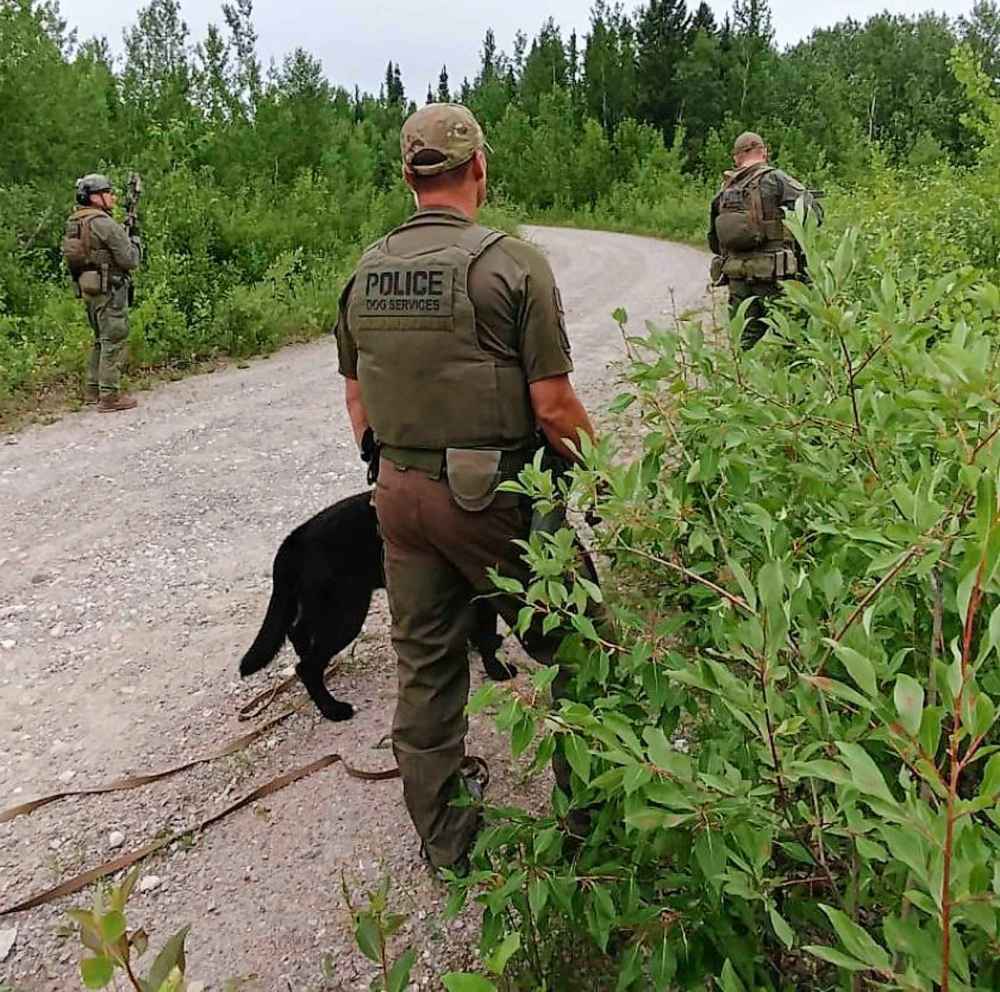
“They will have a world of hurt facing them,” said Stroud. “Just walking around in a swamp is a nightmare and slows you down to a pathetic pace… It’s intensely terrifying if you’re not prepared.”
Stroud said the psychological effect of being stuck in the wilderness with another person could also take a toll on the accused killers.
“The fear will be enough to get in between them. Are they acting as a team, supporting each other, laying out the plan as they expected? Or are they at each others’ throats?” Stroud said. “That’s going to come into play here too, and every disastrous move on their part makes it a lot more difficult for them to get along.”

Christopher Traverse, who survived four days in the wilderness after getting lost over a decade ago, said the kind of terrain the two fugitives are thought to be hiding in is similar to the woods he got lost in. In 2008, Traverse survived in the bush near Lake St. Martin after he got lost on his snowmobile returning from a fishing trip.
He said the two men likely have more access to food and water than he did when he was lost during the winter. But because of the rough terrain, Traverse said he doesn’t think they would have ventured very far into the wilderness.
Mounties going house-by-house
Mounties will go door to door in Gillam and nearby Fox Lake Cree Nation to search for two accused killers from B.C.
Cpl. Julie Courchaine said on Friday officers would conduct the house-by-house examination for fugitives Kam McLeod, 19, and Bryer Schmegelsky, 18 during the next 72 hours.
Mounties will go door to door in Gillam and nearby Fox Lake Cree Nation to search for two accused killers from B.C.
Cpl. Julie Courchaine said on Friday officers would conduct the house-by-house examination for fugitives Kam McLeod, 19, and Bryer Schmegelsky, 18 during the next 72 hours.
“Maybe there’s something that seemed insignificant to them and maybe it’s something that will really help us in our investigation,” she said. “That’s why we’re doing it, (and) we want the people in those communities to know that.”
She said investigators are exploring the possibility that someone may have inadvertently helped the men leave the area.
“It is possible that someone may not have been aware of who they were providing assistance to and may now be hesitant to come forward,” she said. “I want to reiterate the importance of contacting police immediately.”
Courchaine said the only confirmed sighting of the suspects in Manitoba was on Monday in the Gillam area. There have been no confirmed sightings of them since then, but investigators are open to the possibility the two may have travelled out of the area.
Courchaine said investigators have received more than 120 tips in the past few days. Misinformation that has spread online, including rumours the suspects were in the Clear Lake and Beausejour areas, doesn’t help investigators.
“The spreading of false information in communities across Manitoba has created fear and panic,” said Courchaine. “If you have some information, send it to us so we can confirm it. Don’t start spreading things that aren’t verified… As soon as we can confirm that (information) is accurate or is something that we need to tell you, we are going to tell you.”
“They’re probably close to a road or water. I don’t see them going into the bush… It’s very thick, and you lose track of whether you’re going straight or not,” he said. “If anything, they’re stationed somewhere, hiding out there in the day, and coming out in the night time… near a road, train tracks, maybe an old snowmobile trail or a trapper’s line.”
Stroud said the men’s experience in harsh conditions and the gear they might have packed would indicate whether they’re prepared enough to survive in the woods.
“Is it hunting once a week, or is it a very high skill level in what to do in wilderness and survival?” Stroud asked. “What is their kit, what do they have with them? A year’s worth of bullets and good rifles? Or some power bars in a backpack?”
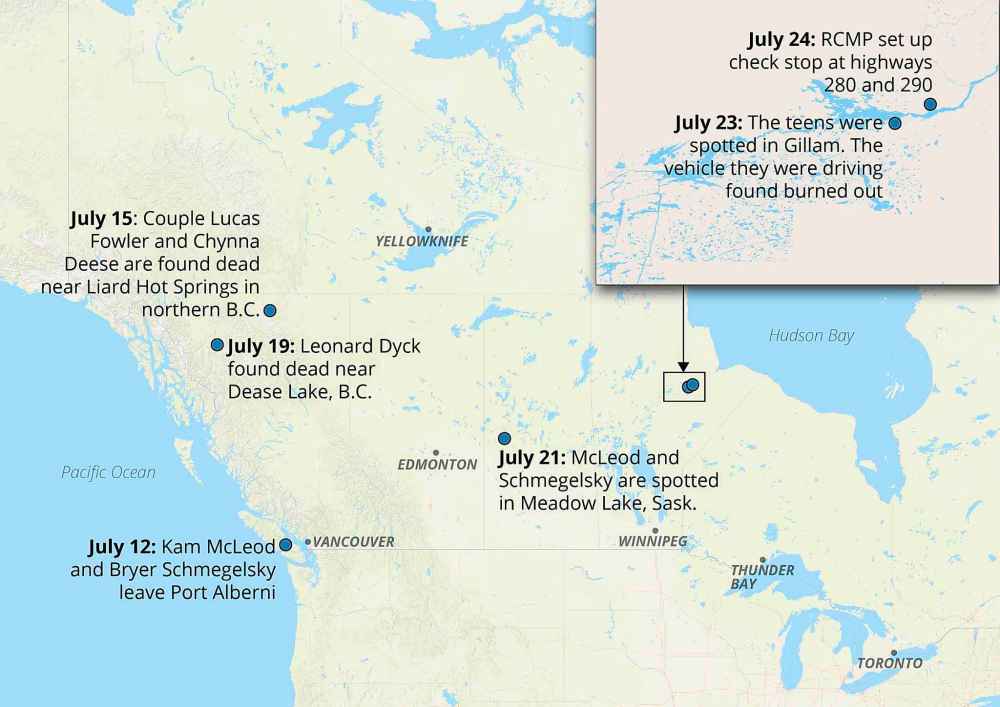
Stroud said the biggest factor in determining how they survive is their level of planning.
“Is this all a big accident gone wrong, and they’re running scared? Or was it premeditated, and they have a plan set?” Stroud said. “They may very well have caches and cabins they can get to, trails they can utilize.”
caitlyn.gowriluk@freepress.mb.ca





